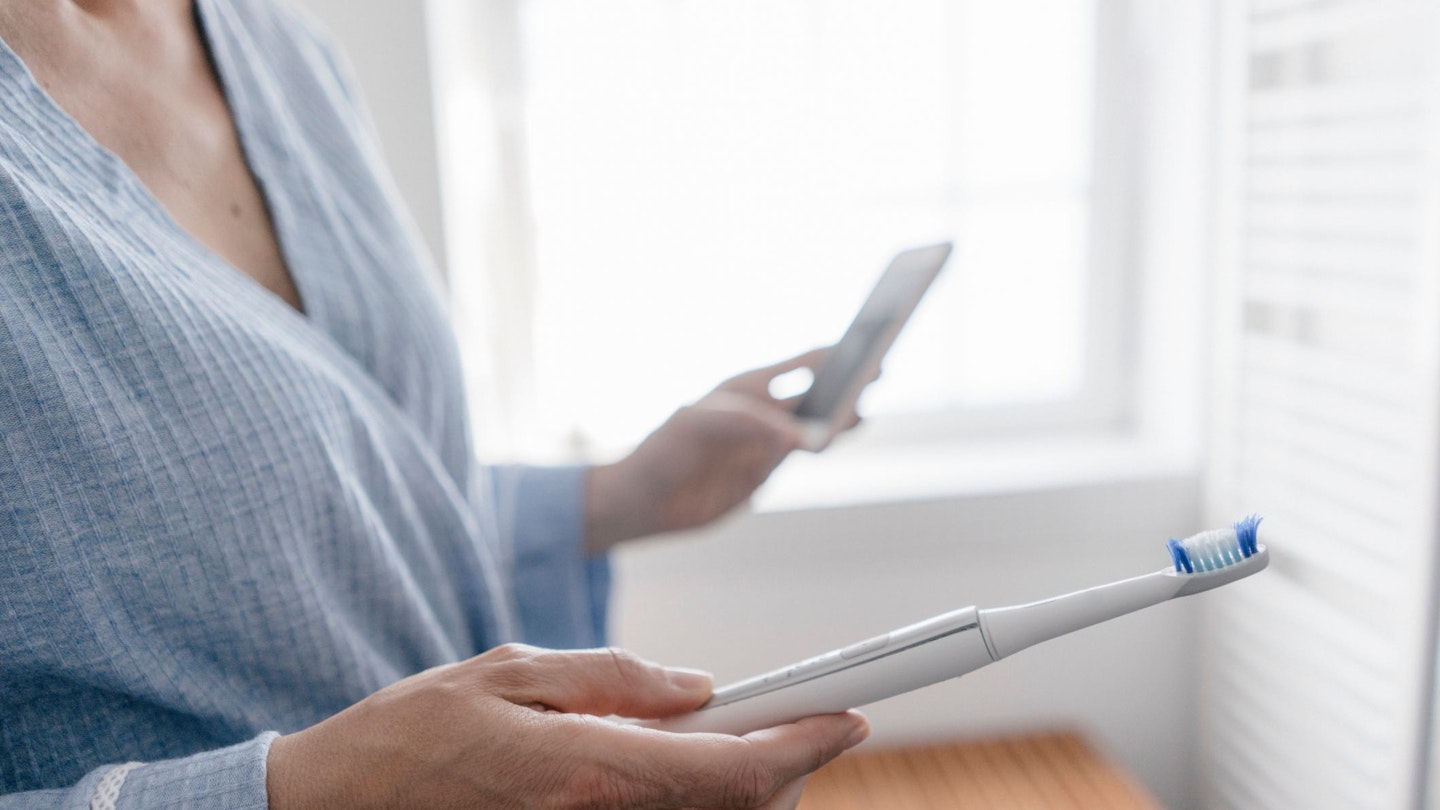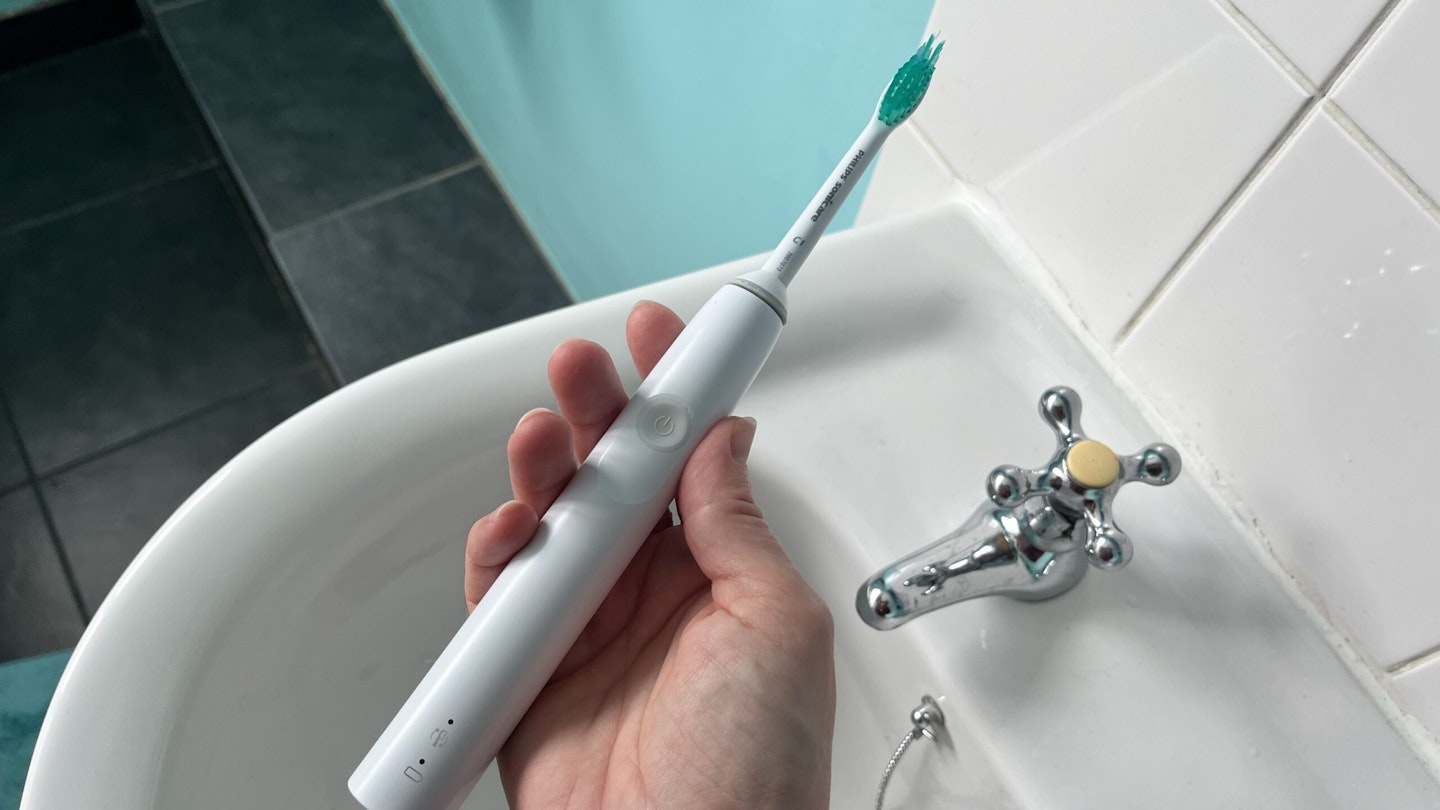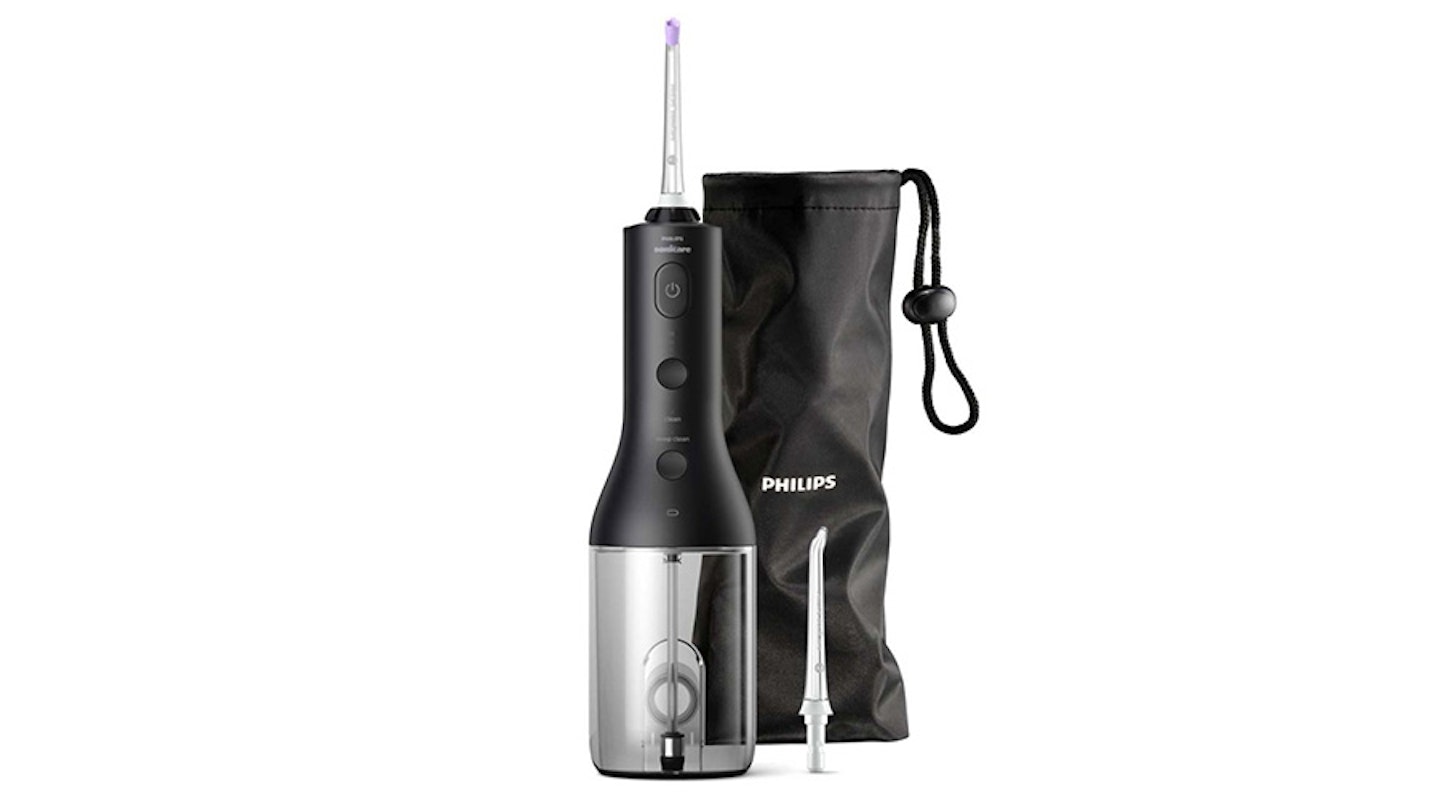Dr Safa Al-Naher talks us through top teeth tips, plus reveals which electric toothbrush they'd recommend.
Brushing your teeth is essential to ensure your teeth and gums stay clean and healthy. But with so many toothbrushes on the market it raises the question of which is better - an electric toothbrush or a manual?
Making sure you take care of your teeth correctly is super important to avoid tooth decay and gum disease, so we spoke to Dr Safa Al-Naher, Dentist and founder of Serene by Dr Safa for top tips on how to get the best our of your brush and to settle the debate - should you use a manual or an electric toothbrush?
Is an electric toothbrush better than a manual toothbrush?
Dr Safa says: "Electric toothbrushes have been shown to be more effective than manual brushes in numerous studies. I recommend a Sonicare sonic toothbrush (see below for details) as the brush head sweeps over the teeth many thousands of times a minute, so many more than can be achieved manually, and it is far less technique sensitive, you just hover the brush over the teeth and it does all the work for you, without exerting undue pressure on the gums.
"The Sonicare range of brushes have other inbuilt benefits like timers (signaling when it is time to move to the next section of the mouth every 30 seconds, and again after two minutes so you brush for the recommended time), pressure sensors and different cleaning modes - gum health, tooth whitening, and so on. Others have apps which allow you to monitor the effectiveness of your brushing every day and even share the data with their dentist. The brush holds two weeks of charge and can be recharged using your computer USB port too.
“In theory you should be able to brush the same with a manual or electric toothbrush, but with a manual toothbrush not only do you have to put it in the right position, but you also have to do the right wrist movement so that you're not brushing too hard, but also brushing the right amount. I also recommend an electric toothbrush for children as it can be difficult to get them to stand with their mouth open for long enough.”
According to the Oral Health Foundation, a new study, which has taken 11 years to complete, also found that those who brush their teeth using an electric toothbrush had healthier gums and less tooth decay, in comparison to those who used a manual toothbrush.
How long should you brush your teeth for?

The advised time to brush your teeth is two minutes. "I suggest patients split their mouths into four areas, and brush each for thirty seconds and during this time to brush the front, back, top and between each tooth," Dr Safa says. "Then move to the next quarter and so on. Using a two-minute egg timer or stop watch on your phone helps but most electric tooth brushes also have a timer function."
How to brush your teeth correctly
"Brushing our teeth twice a day for two minutes with a fluoride toothpaste is vital for gum health and also helps protect against other tooth decay. The best results are achieved if you brush last thing at night and first thing in the morning - ideally before you eat breakfast - using an electric toothbrush," Dr Safa says.
"It is equally as important that we spit out the excess toothpaste after brushing but don’t rinse our mouth out with water as this makes sure the fluoride stays on our teeth longer, giving extra protection.
"Try not to apply too much pressure when you brush as this can lead gums to bleed more and may ultimately cause them to recede."
Dr Safa's top tips for teeth
As well as using a electric toothbrush twice a day and brushing as details above, Dr Safa offers the following tips:
-
Use interdental brushes or floss: "A toothbrush can't reach between the teeth like interdental brushes or floss can. It’s important to get into these areas otherwise pockets of plaque may build up, potentially causing problems for our gums. When we first start using interdental brushes or floss it's not uncommon for our gums to bleed. If this happens, it is important to persist and keep going. After a week or two the bleeding should stop. I am often asked how many teeth I should floss between - and I reply, only the teeth you want to keep! Like brushing, flossing is technique sensitive and you can also use a powered device, and I like the Philips Power Flosser."
-
Use a mouthwash: "Using a mouthwash is beneficial for oral health as it helps to clear our mouth of debris. It also helps prevent plaque build-up on our gums, in-between our teeth, and on the surface of our teeth in between brushing. It can also help to freshen our breath by killing bacteria. It’s important when considering a mouthwash, to choose one containing fluoride to help give the mouth extra protection throughout the day."
-
Visit the dentist: "If you have bleeding gums it is a good idea to contact your dentist or dental hygienist especially if you haven’t seen yours for over a year. We may want to see you more frequently, for example every three to six months, if there are signs of gum disease. We can give our advice on cleaning techniques and remove any tartar build-up which may develop faster or in larger quantities if you are not quite removing plaque efficiently at home."
-
Pay attention to your diet and lifestyle: "Smoking increases the risk of gum disease, so it's a good idea for both your oral health and overall health to quit. This is because smoking causes a lack of oxygen in the bloodstream, so the infected gums don't get the chance to heal. It is also a good idea to keep your alcohol consumption in check as it can also affect the health of the mouth.
A diet rich in fresh fruit and vegetables can help us to prevent gum disease. Watch out though as processed foods with 'no added sugar' doesn't mean they are sugar-free, it just indicates that no extra sugar has been added, but does not include the presence of naturally-occurring sugars. You may want to avoid dried fruit, for example, as not only are they very high in natural sugars, but they cling to the teeth like glue!
Remember that healthy gums mean that we are less likely to experience tooth loss, bad breath, diabetes, heart attacks and strokes. These benefits extend far beyond the mouth and really can help improve our quality of life."
Are electric toothbrushes better for people with braces?
“Yes they are, especially if you can find an attachment for braces,” says Dr Safa. “People wearing braces are generally teenagers who at the best of times don't want to brush their teeth, so an electric toothbrush helps to shorten the time and help make sure you're getting a good clean. With a special braces attachment you can also get a good clean in between and under all of the wires.”
Electric toothbrush recommendations
“Anything from the Philips Sonicare range is great,” says Dr Safa. “The Power Flosser from Philips is also amazing and is great to use alongside brushing. Obviously brushing doesn't remove the plaque in between your teeth, so using something like a power flosser is great to cover those surfaces again.”
Best electric toothbrush recommended by a dentist
 Yours
Yourswww.johnlewis.com
This electric toothbrush claims to whiten your teeth in just one week. It has three different modes (clean, white and gum), so that you can specifically target your teeth's needs and comes with a sleek travel case, which also charges your toothbrush.
We've tested this brush over a six-week period and we love it. It pulses (moves side to side) instead of oscillating like some other brands, which we preferred for getting in between teeth. Over time we noticed that stains on our teeth were lifted. The only thing we had changed was the brush, so it must be effective.
It's simple to use and easy to hold - not too heavy, and the head is small enough to move around the mouth with ease. It comes with a travel case and spare head, and then extra replacement heads are available to purchase in most chemists or supermarkets. The charge lasts around two weeks - and that's with using it twice daily, so no need to panic if you forget to take the charger on holiday.
There's also a light on the front of the unit that tells you when the battery needs charging and another light to tell you when to replace the head. This feature is very handy if, like us, you forget when you last did it.
Prior to testing this brush, our tester had an oral-B one. He's now a complete Sonicare convert!
Pros
- Cleans really well between teeth
- Easy to move around the mouth
Cons
- Pulsates rather than oscillates - though this isn't a con if you prefer that.
Best water flosser

www.johnlewis.com
Finish off cleaning your teeth with this Philips' flosser, which helps remove 99% of plaque in treated areas.
Dr Safa says: "The Philips Power Flosser has a very specific way of shooting the water out, at the right pressure, so that it can clean the gum margin (the area where the gums meet the teeth), get in between the teeth, and remove as much plaque as possible.
The purpose of a water flosser is to replace manual interdental cleaning. For me, floss is the best - I think you will always get a better clean that way - and interdental cleaning with small rubberised sticks is also a good method.
But it is very reliant on the using the right technique so if you find it difficult or a struggle - lots of people have dexterity issues - or if you prefer something quicker, then water flossers are a great addition. They can be more gentle on the gums than string floss and they’re great for saving time – for example you can use them in the shower.
There is a little learning curve with them, in order to not make too much of a mess!"
Pros
- Has just the right pressure for cleaning gums
- Great for people with dexterity issues
Cons
- Can be very messy - best used in the shower to start! This is an issue with all water flossers though, not just this one
Dr Safa Al-Naher is a dentist and founder of Serene by Dr Safa
Becky Fuller is a senior digital writer for Yours.co.uk. She is also a fully qualified personal trainer and strength coach, specialising in fitness and wellbeing for over 50s. Prior to joining Yours, Becky was a fitness writer for Saga, and a freelance entertainment and theatre journalist. Becky is passionate about helping people to move well and discover the many benefits of strength training.
